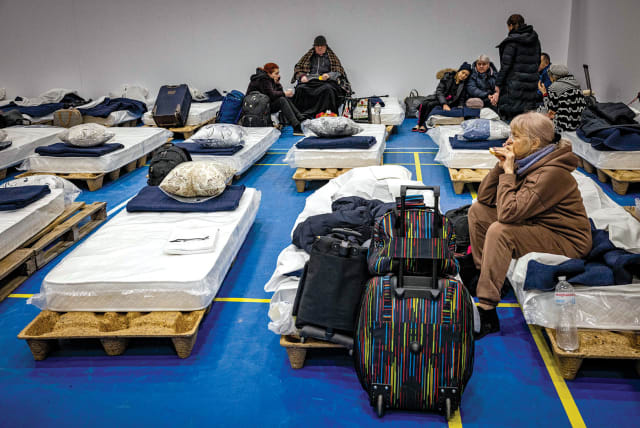SpaceX sued by US government over alleged asylee, refugee discrimination

Data from the company showed that in that period, 10,000 employees were hired. Of those 10,000, only one was an asylum seeker, allegedly hired months after the investigation began.
The United States Department of Justice (DOJ) is suing Elon Musk's aerospace company, SpaceX, for alleged discriminatory practices against refugees and asylum seekers, US media reported on Saturday.
The company was facing a civil lawsuit from the federal government in defiance of the Immigration and Nationality Act for exclusionary actions taken between September 2018 and May 2022, ABC News reported. The aerospace agency reportedly discouraged asylum seekers and refugees from applying, and would not even consider their applications.
One of the complaints filed said that Musk and SpaceX leadership made claims that "export control laws" kept the company from hiring anyone who wasn't a US citizen or green card holder, with the Department of Justice disputing this claim, ABC News reported.
"Asylees and refugees have overcome many obstacles in their lives, and unlawful employment discrimination based on their citizenship status should not be one of them," Assistant Attorney General Kristen Clarke of the Justice Department’s Civil Rights Division said in a statement.
US media reported that the DOJ's Immigrant and Employment Rights section has been investigating these allegations since May 2020.
Wide range of applicants denied
Many of the hires in question would be for assorted roles like crane operators, cooks, and dishwashers, along with business analysts, engineers, and more, according to the suit.
Musk described the Justice Department lawsuit against SpaceX as "weaponization of the DOJ for political purposes."
In a post on X, the SpaceX CEO said the company "was told repeatedly that hiring anyone who was not a permanent resident of the United States would violate international arms trafficking law, which would be a criminal offense."
Musk also reportedly cited ITAR and Export Administration Regulations (EAR) for many of his claims, though the DoJ stated that these laws have no such restrictions on asylees and refugees. ITAR laws "restrict an employer's ability to export certain goods, software, technology, and technical data," the suit says.
The DOJ's case also claimed that between September 2018 and March 2022, the company's job applications required applicants to identify their status as citizen, resident, refugee, or asylum seeker under a series of codes. According to the suit, the company's hiring managers and recruiters used the codes to reject candidates based on their answers.
If someone was listed as an asylum seeker or refugee, they were automatically rejected. US media reported that the suit claimed a recruiter used the rejection code on an applicant who was an asylum seeker "who had more than nine years of relevant engineering experience and had graduated from Georgia Tech University."
Data from the company showed that in that period, 10,000 employees were hired. Of those 10,000, only one was an asylum seeker, allegedly hired months after the investigation began.
The lawsuit also seeks civil penalties in an amount to be determined by the court and policy changes to ensure SpaceX complies with the federal non-discrimination mandate going forward.
Jerusalem Post Store
`; document.getElementById("linkPremium").innerHTML = cont; var divWithLink = document.getElementById("premium-link"); if (divWithLink !== null && divWithLink !== 'undefined') { divWithLink.style.border = "solid 1px #cb0f3e"; divWithLink.style.textAlign = "center"; divWithLink.style.marginBottom = "15px"; divWithLink.style.marginTop = "15px"; divWithLink.style.width = "100%"; divWithLink.style.backgroundColor = "#122952"; divWithLink.style.color = "#ffffff"; divWithLink.style.lineHeight = "1.5"; } } (function (v, i) { });

